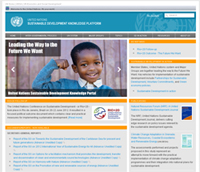CSR 2.0. A Competitive Tool for the Future
It is foolish to think that the crisis does not affect the areas covered by CSR policies. If GDP falls, if consumption weakens, if unemployment grows, if the rate of debt multiplies, if credit comes to a standstill ... in these situations it is unreasonable to believe that there might be areas or departments within companies (CSR, for example) that won’t be affected by the new economic context.
So in this context I would like to frame the following anecdote: recently I had the opportunity of participating in an academic- business debate about the impact of CSR on the crisis. I was surprised to hear again arguments from seven years ago: “Business’ sole responsibility (said the debater) is to comply with the law, and moreover, that responsibility relates only to its shareholders”.
Again – I thought – lawyers are showing up to talk about article 1.902 of the Spanish Civil Code , instead of understanding the meaning of the word ‘responsible’ according to the Royal Academy of the Spanish Language Dictionary. I took advantage of the confusion to make a premeditated and provocative statement: “And if CSR were to be part of the solution?” I asked. The replies came in no time: Wouldn’t it be better if companies tightened their belts, focused more on providing good service and forgot about the “other things”, like making donations and sponsorships? How can businesses be burdened with more costs? How can they continue spending on social projects when the bottom line is under such pressure?
Didn’t those investment banks which were dragged down by ‘toxic assets’ and lack of transparency have thick CSR reports? What can CSR contribute to me as a client? Or as an employee or shareholder?
Some conclusions
The times we live in are not easy. That’s why I believe it is necessary to link, more than ever, CSR to financial statements. The questions are clear: To what degree can CSR generate more incomes? And reduce expenses or minimize risks? And have an impact on margins and customer satisfaction? And improve the labour climate? However, the answers are not always evident.
To tackle this new time period, what we have called CSR 2.0, we have to make an effort. To begin with, the language has to be changed, to give up ‘do-goodism’, and forget the thing about ‘giving back to society’. To continue, social projects must be invested in, in the same way R&D is invested in, looking for new engines of economic growth. Understood this way, CSR 2.0 has two clear characteristics. Firstly, study all the elements of CSR 1.0. That doesn’t mean giving up what has been done (reports, socially responsible investment indices, ethical standards, presence in multilateral institutions…), and then, with no less effort: a) on the basis of that work and b) making sure the target is set at zero, because the risks are well managed, drive the real motors of economic growth based on the big issues in the public agenda.
In this way, and if I might make a comparison with football, I believe that the new roadmap for large global companies can have two speeds:
– At the global level, it is key that multinationals be firm in their defence strategy. The objective of this strategy is to ensure no goals are scored against, assuring that some integral conduct is carried out in the whole theatre of operations. As a last resort, this defense strategy is oriented towards cost reduction, achieving economies of scale in global projects as well as minimizing negative impacts on the value chain (risks).
– CSR 2.0, or the attack strategy, starts from a premise: about the economies of scale of growth projects, each country,
niche to niche, sector to sector, identify new business opportunities based on new matters in the public agenda. For example, in the telecommunications sector, we have identified these things as key: Productivity, Education, Energy efficiency, Health solutions and Products directed at the elderly and to people with disabilities.
In reality, it is hard to determine where CSR 2.0 begins and where CSR 1.0 ends. What indeed can be said is that a new ‘momentum’ for CSR has already begun. Whoever continues to operate on the old way of thinking is already out of the market.
Download the full article TELOS_Andreu_CSR_20_ingles










